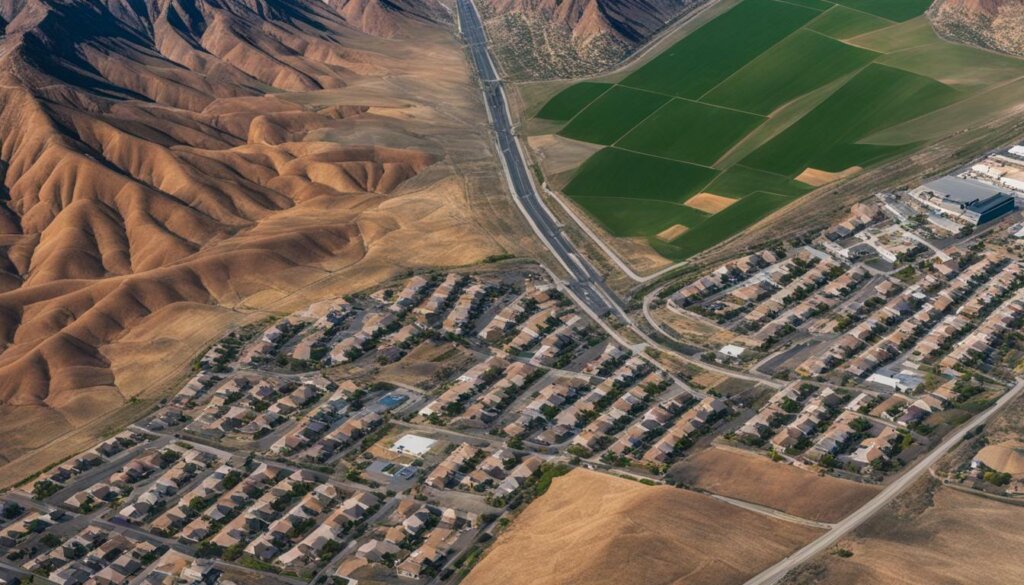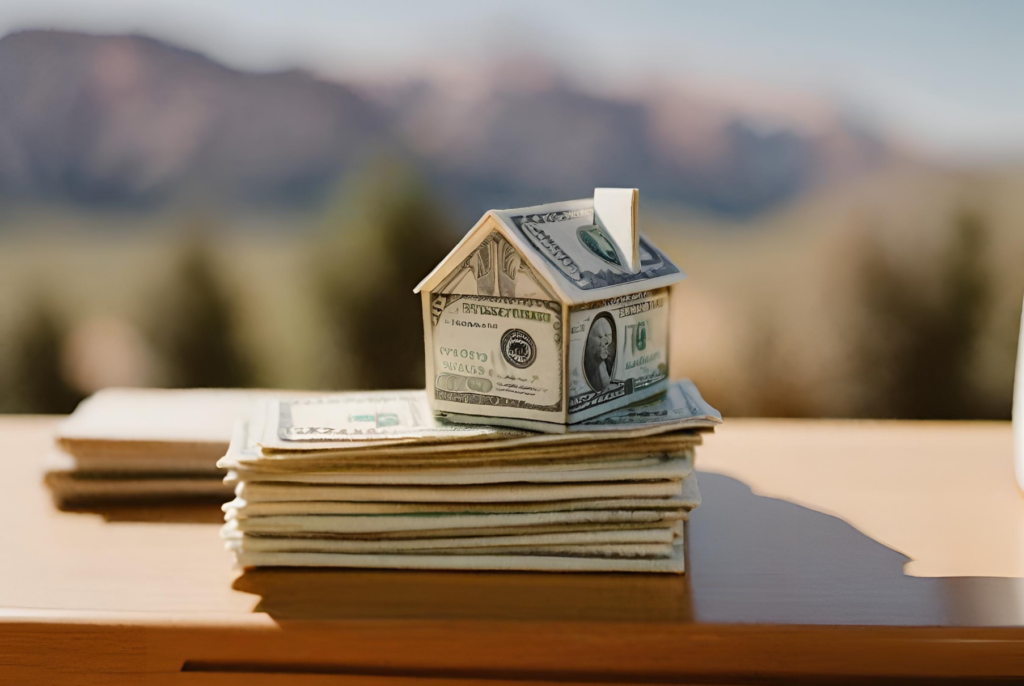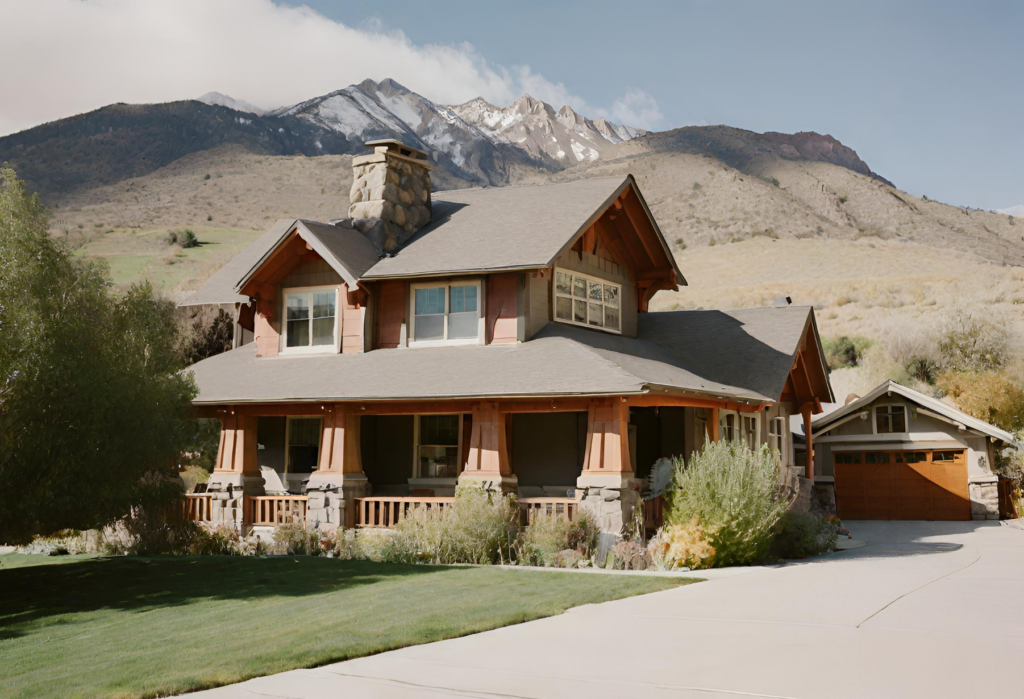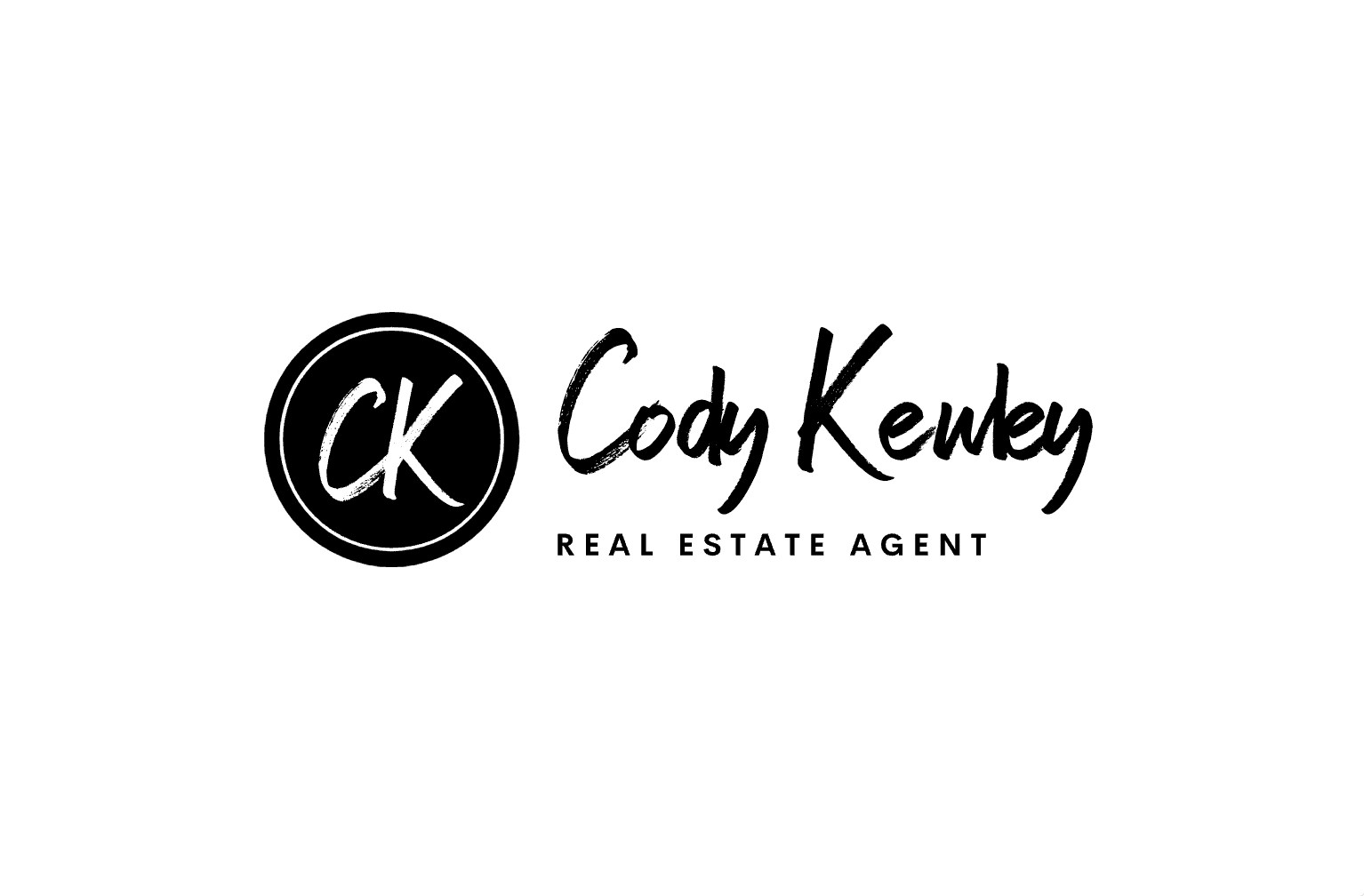Is Utah Real Estate Expensive?
Utah, the Beehive State, is known for its scenic landscapes, national parks, and booming economy. With a growing population and a thriving job market, the Utah real estate market is attracting both buyers and sellers. However, one question remains prevalent: Is Utah real estate expensive? In this section, we will explore the state’s housing market and analyze the average home prices in Utah to determine the affordability of real estate.

- Utah’s growing population and thriving economy make it an attractive real estate market.
- The affordability of Utah real estate is determined by analyzing the average home prices and comparing them to income levels.
- Understanding the factors that influence the Utah housing market, such as supply and demand, population growth, and economic conditions, is essential in determining the cost of living in Utah.
- If you’re looking to buy or sell a house in Utah, turn to Cody Kewley Real Estate Agent, for expert guidance.
- Utah presents unique opportunities for property investment, with potential returns on investment from rental demand, vacation rentals, and long-term appreciation in property values.
Understanding the Utah Housing Market
When it comes to Utah real estate, understanding the housing market is crucial. The Utah housing market is unique, and several factors can influence property values and availability.
Population Growth in Utah
Utah has witnessed steady population growth over the past few years, making it one of the fastest-growing states in the US. This growth has significantly impacted the Utah housing market, leading to higher demand for properties and, subsequently, rising property prices.
Supply and Demand in Utah Housing Market
The supply of available housing in Utah is low compared to the high demand for real estate. This imbalance has resulted in an increase in property prices, particularly in areas with high demand, such as Salt Lake City and Park City.
Economic Conditions in Utah
The Utah economy has been performing well in recent years, with low unemployment rates and a thriving business environment. This economic stability has attracted more people to the state, further contributing to the demand for Utah real estate.
Impact of Outdoor Recreation
Utah’s natural attractions, such as national parks and ski resorts, have also played a significant role in the Utah housing market. The state’s outdoor recreation industry has drawn both tourists and residents, increasing demand for properties in areas close to recreational amenities.
Overall, the Utah housing market presents unique opportunities and challenges for those buying or selling property. Being aware of the factors that influence property values and availability can help individuals make informed decisions.

When it comes to Utah real estate, one of the most significant factors to consider is the average home prices in the state. Utah home prices have been on the rise in recent years, leading many to question whether real estate in Utah is expensive.
The average home value in Utah is roughly around $510,000, which is higher than the national average of $400,000. However, it is essential to note that the average home prices in Utah vary significantly by location and property type.
In some areas, real estate prices can be relatively lower, while in others, they can be significantly higher. Salt Lake City, for instance, has an average home price of $540,000, while Park City, a famous ski resort town, has an average home price of $1.5 million.
| Location | Median Home Value |
|---|---|
| Utah | $510,000 |
| United States | $400,000 |
However, when looking at specific cities in Utah, the differences are even more apparent. For example, the average home value in Salt Lake City is $540,700, while in St. George, it is $506,000.

Overall, while Utah real estate may be more expensive than the national average, the average home prices in Utah can vary significantly depending on the location and type of property. It is crucial to work with a licensed real estate agent like Cody Kewley, who can provide personalized guidance to help you navigate the Utah real estate market and find a property that meets your needs and budget.
Factors Affecting Utah Property Values
Utah’s real estate market is influenced by various factors, both internal and external, that affect property values. Some of the essential factors to consider when evaluating Utah property values include:
- Location: The location of a property is a crucial determinant of its value. Factors such as proximity to shopping, dining, schools, and recreation areas can significantly impact property values.
- Amenities: Properties with unique amenities, such as a pool or a gym, often command higher prices due to their added value.
- Proximity to attractions: Homes located near natural attractions such as mountains, beaches, and parks, are often more expensive due to their scenic beauty and access to outdoor activities.
- School districts: Properties located in highly-rated school districts are often more expensive due to the quality of education offered in those areas, making them a desirable location for families.
- Economic conditions: The state of Utah’s economy can significantly impact the local real estate market. In areas with high job growth and economic development, property values tend to appreciate faster.

Understanding these various factors is crucial when evaluating Utah’s real estate market. By analyzing the current state of the economy and monitoring local trends, buyers and sellers can make informed decisions about purchasing or selling property in Utah.
Housing Affordability in Utah
While Utah’s real estate prices may seem high, it’s crucial to evaluate housing affordability. According to the Federal Reserve Economic Data, the median home list price in Utah is $600,000, which is significantly higher than the national median of $416,000. However, housing affordability in Utah varies depending on the location and income levels.
When evaluating housing affordability, it’s essential to analyze the cost of living and income levels. The cost of living in Utah is approximately equally proportional to the national average, making it an attractive state for those seeking affordable housing options. Additionally, Utah boasts a low unemployment rate, with plenty of job opportunities available in industries such as technology, healthcare, and outdoor recreation.
When considering purchasing a home in Utah, it’s important to factor in your income level. Utah’s median household income is $79,133, which is higher than the national median of $74,580. This means that for some individuals and families, purchasing a home in Utah may be more feasible than in other parts of the country.
Overall, while real estate prices in Utah may appear high, the state’s reasonable cost of living and ample job opportunities make it a viable option for those seeking affordable and desirable housing options.

Are you considering buying or selling a house in Utah? Look no further than Cody Kewley, a licensed Utah real estate agent who has the expertise and experience to guide you through the process. With Cody’s help, you can navigate the Utah real estate market with confidence and ease.
Whether you’re looking to buy a house in Utah or sell your current property, Cody can provide personalized assistance tailored to your specific needs. He understands that every client is unique, and he offers a customized approach to help you achieve your real estate goals.
As a Utah native, Cody has extensive knowledge of the local real estate market. He stays up-to-date on the latest trends and developments to provide you with the most accurate information and insights. Whether you’re a first-time homebuyer or an experienced investor, you can trust Cody to help you make informed decisions.
Working with Cody is easy and stress-free. He will take care of all the details, from negotiating offers to handling paperwork, so you can focus on enjoying your home buying or selling experience. With Cody by your side, you can rest assured that you are in good hands.
So why wait? Contact Cody Kewley today to start your Utah real estate journey. With his expert guidance and personalized assistance, you can achieve your real estate goals and live the life you’ve always dreamed of.

If you’re looking to invest in real estate, Utah offers unique opportunities for potential investors. The Utah real estate market has been steadily growing, making it an attractive option for those seeking potential returns on investment.
One factor contributing to Utah’s real estate market growth is its overall economic development. Utah has a diverse economy with various industries contributing to its economic growth, including technology, tourism, and manufacturing. With a stable job market, Utah’s population has been steadily growing, increasing demand for housing and driving property values up.
Another factor to consider when investing in Utah real estate is the potential for long-term appreciation in property values. While it’s important to evaluate current property values, it’s also essential to look at the long-term outlook for the market. Utah’s natural attractions, such as its national parks and ski resorts, make it a popular destination for tourists, which can drive up the value of vacation rental properties.
| Factors to Consider | Potential Benefits |
|---|---|
| Rental Demand | Steady cash flow from renters |
| Vacation Rentals | Potential for high returns on investment during peak seasons |
| Long-Term Appreciation | Potential to build wealth over time as property values increase |
Whether you’re interested in rental properties or long-term appreciation, Utah’s real estate market offers unique opportunities for investors. By understanding the factors contributing to the growth of Utah’s real estate market, you can make informed decisions and potentially see strong returns on your investment.

The comparison of Utah to national averages indicates that the state’s real estate market can be relatively expensive. However, it’s essential to consider the state’s economic development, population growth, and other factors when evaluating whether real estate prices are reasonable.
Exploring Affluent Neighborhoods in Utah
Utah boasts several affluent neighborhoods that offer luxurious homes with breathtaking views and exclusive amenities. If you’re looking for expensive real estate in Utah, these neighborhoods might pique your interest:
| Neighborhood | Features | Property Values |
|---|---|---|
| Park City | Ski-in/ski-out access, fine dining, and boutique shopping | $1,700,000+ |
| The Avenues | Historic homes, tree-lined streets, and proximity to downtown Salt Lake City | $750,000+ |
| Holladay | Luxury estates, large lots, and stunning mountain views | $1,000,000+ |
In these affluent neighborhoods, you can enjoy a high standard of living with access to world-class amenities and stunning natural scenery. However, keep in mind that purchasing property in these neighborhoods comes at a premium price.

Whether you’re a buyer or seller in Utah’s real estate market, it’s important to have expert guidance to help you navigate the process. Cody Kewley Real Estate Agent is here to provide you with personalized assistance to achieve your real estate goals.
Factors Contributing to Utah’s Real Estate Prices
Utah’s real estate market is a dynamic and constantly evolving ecosystem. The state’s unique blend of natural attractions, robust economy, and population growth have been major drivers behind the increase in real estate prices. Here are the primary factors contributing to the cost of real estate in Utah:
| Factor | Description |
|---|---|
| Location | Utah has a diverse range of geographical locations, from mountainous regions to the desert. Areas with higher demand and better access to city amenities tend to be more expensive than rural areas. |
| Economic Development | Utah has experienced immense growth in recent years, which has resulted in the creation of new job opportunities. This has increased the demand for housing, consequently driving up property prices. |
| Population Growth | Utah’s population has been steadily increasing over the years, primarily due to the state’s robust economy and growing job market. The influx of people has created a higher demand for housing, leading to higher property prices. |
| Amenities | Properties with additional amenities or features, such as swimming pools or scenic views, tend to be more expensive since they offer a unique value proposition. |
| School Districts | Real estate prices tend to be higher in neighborhoods with high-quality schools since education is a top priority for many families. |
While these are not the only factors influencing Utah’s real estate prices, they provide a comprehensive overview of the primary elements. By understanding these influences, potential buyers and sellers can make informed decisions regarding their real estate transactions.

As you can see, Utah’s real estate market is influenced by various factors. Understanding these factors can help you make an informed decision when investing in real estate in Utah.
Conclusion
In conclusion, Utah’s real estate market presents both challenges and opportunities for buyers and sellers. While property prices in some areas may seem expensive, affordable housing options are available in others. It is crucial to consider factors such as location, amenities, and market demand when evaluating the cost of living in Utah.
Whether you’re looking to buy or sell a house, working with a licensed real estate agent like Cody Kewley can provide personalized guidance to help you navigate the Utah real estate market. Cody’s expertise and knowledge of the local housing market make him an invaluable resource for anyone looking to achieve their real estate goals in Utah.
With its growing population, strong economy, and natural attractions, Utah is an attractive destination for individuals and families looking for a place to call home. By understanding the factors that contribute to property values, you can make informed decisions about your real estate investments in Utah.
FAQ
Is Utah real estate expensive?
Utah real estate prices can vary depending on factors such as location and market demand. While some areas may have higher prices, there are also more affordable options available. The high prices are also associated with low housing inventory and Utah’s unique ability to appreciate steadily year-over-year.
What factors influence the Utah housing market?
The Utah housing market is influenced by factors such as supply and demand, population growth, and economic conditions. These factors can impact property values and affordability.
What are the average home prices in Utah?
The average home prices in Utah can vary by location. It’s important to research specific areas of interest to get a better understanding of the market and price range. Average home price range is $500,000-$ 600,000
What factors affect Utah property values?
Factors such as location, amenities, proximity to attractions, school districts, and more can impact Utah property values. It’s essential to consider these factors when evaluating real estate options.
Is housing affordable in Utah?
While Utah real estate prices may seem high, housing affordability depends on various factors, including income levels and the cost of living. It’s important to assess personal financial situations when considering purchasing property in Utah.
How can Cody Kewley Real Estate Agent help with Utah real estate?
Cody Kewley, a licensed real estate agent in Utah, offers personalized assistance and expertise in navigating the Utah real estate market. Whether you’re looking to buy or sell a house in Utah, Cody Kewley can provide guidance and support throughout the process.
Are there property investment opportunities in Utah?
Utah offers unique property investment opportunities, including rental demand, vacation rentals, and potential long-term appreciation in property values. It’s important to research and analyze the market before making investment decisions.
How does Utah real estate compare to national averages?
By comparing Utah real estate to national averages, we can gain insights into whether the state’s property prices are relatively high or low. This comparison helps provide a better perspective on the Utah real estate market.
Are there affluent neighborhoods in Utah?
Yes, Utah is home to several affluent neighborhoods with expensive real estate. These neighborhoods offer unique features, amenities, and higher property values. Researching these areas can give you an understanding of the luxury real estate market in Utah.
What factors contribute to Utah’s real estate prices?
Utah’s real estate prices are influenced by factors such as population growth, economic development, job opportunities, natural attractions, and other elements that drive demand and influence property values.
